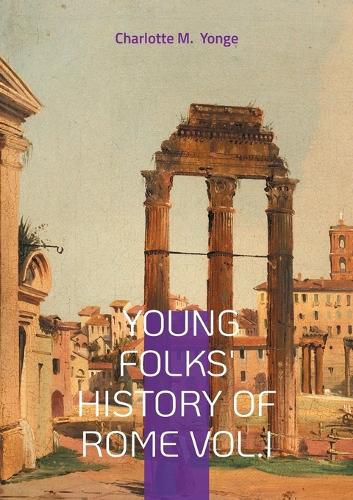Readings Newsletter
Become a Readings Member to make your shopping experience even easier.
Sign in or sign up for free!
You’re not far away from qualifying for FREE standard shipping within Australia
You’ve qualified for FREE standard shipping within Australia
The cart is loading…






This title is printed to order. This book may have been self-published. If so, we cannot guarantee the quality of the content. In the main most books will have gone through the editing process however some may not. We therefore suggest that you be aware of this before ordering this book. If in doubt check either the author or publisher’s details as we are unable to accept any returns unless they are faulty. Please contact us if you have any questions.
Young Folks History Of Rome Vol.I by Charlotte M. Yonge chronicles the rise of Rome from its mythical origins to the early Republic, tailored for young readers. Yonge blends legends like Romulus and Remus with historical events such as the Sabine integration and the reign of Servius Tullius, presenting complex political evolution through accessible storytelling. Her narrative balances military conquests, societal structures, and religious customs, emphasizing moral lessons and civic virtues central to 19th-century educational values. The book meticulously details Romes foundational myths, including Aeneass journey and the establishment of the Senate, while contextualizing cultural practices like the Saturnalia festival and the role of augurs. Yonges structured approach demystifies early Roman governance, from the division between patricians and plebeians to the significance of the Twelve Tables. Vivid descriptions of daily life-such as the toga-clad citizens and the reverence for household gods-immerse readers in antiquity without overwhelming detail. Ideal for educators and parents, this volume bridges myth and scholarship, offering a gateway to classical studies while aligning with modern curricula on ancient civilizations.
$9.00 standard shipping within Australia
FREE standard shipping within Australia for orders over $100.00
Express & International shipping calculated at checkout
This title is printed to order. This book may have been self-published. If so, we cannot guarantee the quality of the content. In the main most books will have gone through the editing process however some may not. We therefore suggest that you be aware of this before ordering this book. If in doubt check either the author or publisher’s details as we are unable to accept any returns unless they are faulty. Please contact us if you have any questions.
Young Folks History Of Rome Vol.I by Charlotte M. Yonge chronicles the rise of Rome from its mythical origins to the early Republic, tailored for young readers. Yonge blends legends like Romulus and Remus with historical events such as the Sabine integration and the reign of Servius Tullius, presenting complex political evolution through accessible storytelling. Her narrative balances military conquests, societal structures, and religious customs, emphasizing moral lessons and civic virtues central to 19th-century educational values. The book meticulously details Romes foundational myths, including Aeneass journey and the establishment of the Senate, while contextualizing cultural practices like the Saturnalia festival and the role of augurs. Yonges structured approach demystifies early Roman governance, from the division between patricians and plebeians to the significance of the Twelve Tables. Vivid descriptions of daily life-such as the toga-clad citizens and the reverence for household gods-immerse readers in antiquity without overwhelming detail. Ideal for educators and parents, this volume bridges myth and scholarship, offering a gateway to classical studies while aligning with modern curricula on ancient civilizations.